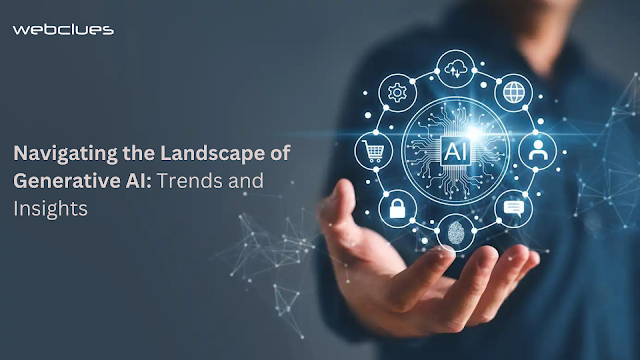One of the foremost trends in GenAI is the advancement in deep learning techniques, particularly through the use of neural networks. Models such as Generative Adversarial Networks (GANs), Variational Autoencoders (VAEs), and Transformers have revolutionized generative tasks by enabling machines to learn complex patterns and generate highly realistic outputs. These architectures have paved the way for applications ranging from image synthesis and style transfer to natural language processing and dialogue generation.
Furthermore, the rise of unsupervised and self-supervised learning methods has been instrumental in enhancing the capabilities of GenAI systems. By training on vast amounts of unlabelled data, these models can extract meaningful representations and insights, leading to more nuanced and context-aware outputs. This trend has fueled advancements in areas like image captioning, where models can generate descriptive text based on the content of an image without explicit supervision.
Another significant trend in the landscape of GenAI is the focus on controllability and interpretability. As AI systems become more proficient at generating diverse outputs, researchers and developers are increasingly emphasizing the importance of controlling the characteristics of generated content. Techniques such as conditional generation, latent space manipulation, and attribute conditioning allow users to steer the output of generative models toward specific goals or constraints. Moreover, efforts to enhance the interpretability of AI-generated content aim to foster trust and understanding, especially in critical applications such as healthcare and autonomous systems.
Ethical considerations loom large in the development and deployment of generative artificial intelligence technologies. Issues surrounding data privacy, bias mitigation, and the potential misuse of AI-generated content are hot topics in the field. Researchers and practitioners are actively exploring methods to mitigate biases in training data, ensure fairness and transparency in AI systems, and establish guidelines for responsible use. Collaborative efforts between academia, industry, and policymakers are essential to address these challenges and foster an ethical and inclusive approach to generative AI development.
The democratization of GenAI tools and resources has also been a significant trend, enabling broader participation and innovation in the field. Open-source libraries, pre-trained models, and online platforms provide accessible entry points for researchers, developers, and enthusiasts to experiment with generative techniques and build upon existing work. This democratization has led to a proliferation of creative applications across diverse domains, fueling a vibrant ecosystem of innovation and collaboration.
Looking ahead, several emerging trends are poised to shape the future of GenAI. Federated learning and edge computing hold promise for enabling decentralized training and inference, allowing AI systems to learn and generate content directly on user devices while preserving privacy and data sovereignty. Moreover, advancements in reinforcement learning and meta-learning are opening new avenues for GenAI systems to adapt and learn from interaction with their environment, leading to more autonomous and adaptive behavior.
In conclusion, navigating the landscape of generative artificial intelligence requires an awareness of the trends and insights driving its development and applications. From advances in deep learning techniques and unsupervised learning to the emphasis on controllability, interpretability, and ethical considerations, the field continues to evolve rapidly. By staying informed and actively engaging with the broader community, stakeholders can harness the full potential of generative AI to drive innovation and address societal challenges responsibly and inclusively. To unlock the full potential of GenAI and stay at the forefront of its dynamic evolution, partner with WebClues Infotech. Explore advanced solutions, stay informed, and actively engage with our expert community. Embrace innovation responsibly and inclusively. Elevate your GenAI journey with WebClues Infotech – Your Path to Intelligent Solutions!


0 Comments